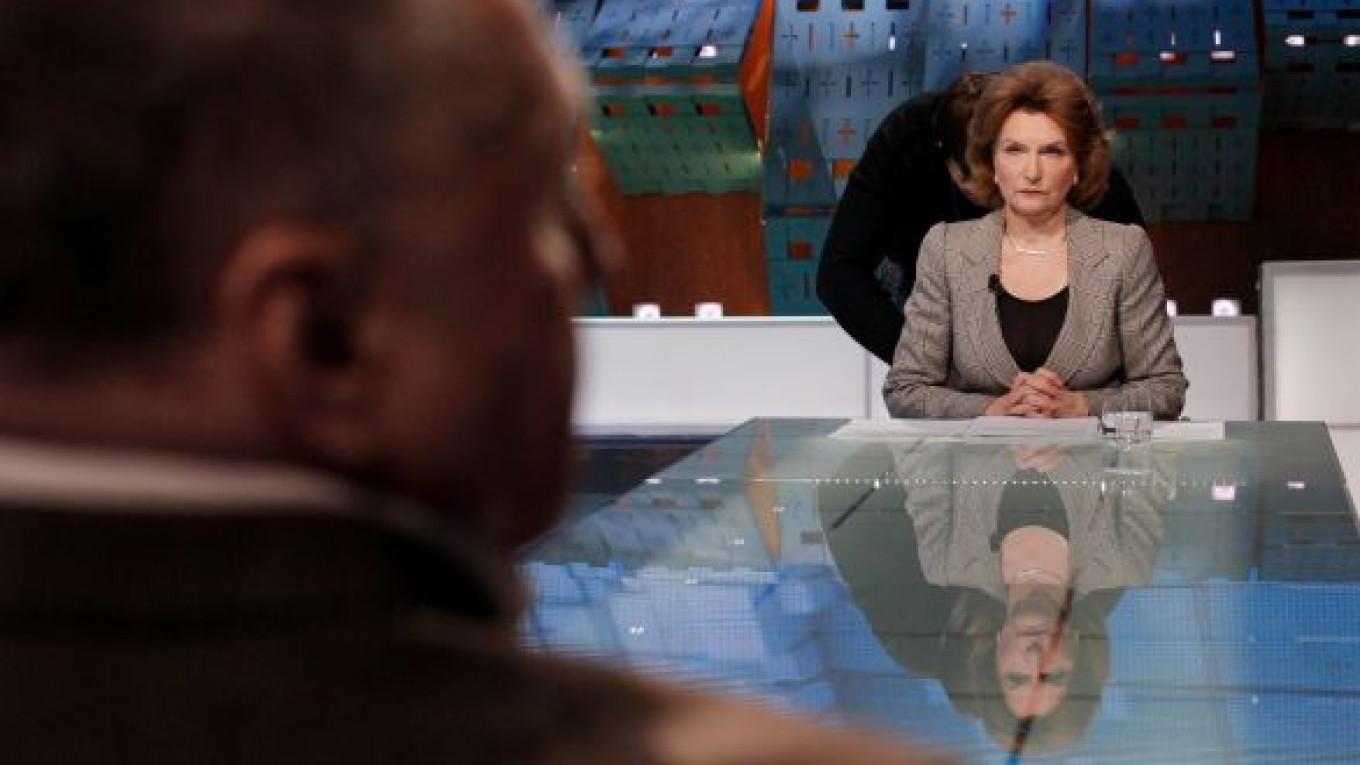In Tuesday's second presidential debate of the campaign season, firebrand Vladimir Zhirinovsky harangued Prime Minister Vladimir Putin's levelheaded proxy over her patron's refusal to debate and alleged desire to rule for life.
Political scientist Natalia Narochnitskaya, one of Putin's 499 designated campaign representatives, said Putin was not afraid.
"He's a master debater and is fully informed," she said.
A Putin spokesperson has said the prime minister is too busy to participate in debates in the run-up to the March 4 contest, which Putin is expected to win by a wide margin.
Narochnitskaya did not wither under Zhirinovsky's characteristic onslaught of colorful epithets and theatrical finger-pointing.
When he accused Putin of seeking a de facto life term, she replied that Putin would step down if Zhirinovsky won.
Meanwhile, in a separate event, Putin told supporters that the government will consider bringing back daylight-saving time, the abolition of which was one of outgoing President Dmitry Medvedev's most widely felt and discussed reforms.
"If the majority thinks that it was better before, we might return [to the old time regime]," Putin said Tuesday, Interfax reported. Putin said Medvedev was open to the idea of returning to the pre-2011 regime, under which clocks were adjusted by one hour twice a year.
The reform caused headaches because many computerized systems failed to account for the change, and Russians have complained about waking up in the dark in winter.
At the time of the reform, Medvedev said the one-hour adjustment, which is observed in most of Western Europe and North America, is harmful to humans and livestock.
The announcement is the latest sign of how far Medvedev's political star has fallen since the Sept. 24 announcement that he and Putin were planning to switch places, with Putin running for president and promising to appoint Medvedev prime minister.
Last month, Putin dealt a blow to Medvedev's plan to reinstate elections of regional governors, by suggesting that the Kremlin should have a say over who can stand in a popular vote. The elections were abolished by then-President Putin in the name of stability in 2004.
The proposal was widely seen as a concession to opposition-minded voters, tens of thousands of whom have taken to the streets since Dec. 4 Duma elections to demand liberal political reforms.
A Message from The Moscow Times:
Dear readers,
We are facing unprecedented challenges. Russia's Prosecutor General's Office has designated The Moscow Times as an "undesirable" organization, criminalizing our work and putting our staff at risk of prosecution. This follows our earlier unjust labeling as a "foreign agent."
These actions are direct attempts to silence independent journalism in Russia. The authorities claim our work "discredits the decisions of the Russian leadership." We see things differently: we strive to provide accurate, unbiased reporting on Russia.
We, the journalists of The Moscow Times, refuse to be silenced. But to continue our work, we need your help.
Your support, no matter how small, makes a world of difference. If you can, please support us monthly starting from just $2. It's quick to set up, and every contribution makes a significant impact.
By supporting The Moscow Times, you're defending open, independent journalism in the face of repression. Thank you for standing with us.
Remind me later.






